Yilin Guo
KPLM-STA: Physically-Accurate Shadow Synthesis for Human Relighting via Keypoint-Based Light Modeling
Nov 11, 2025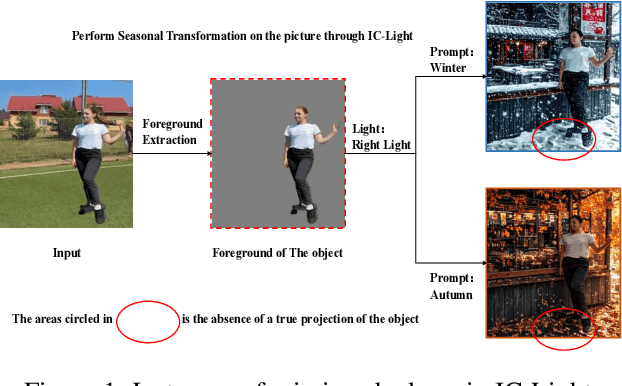



Abstract:Image composition aims to seamlessly integrate a foreground object into a background, where generating realistic and geometrically accurate shadows remains a persistent challenge. While recent diffusion-based methods have outperformed GAN-based approaches, existing techniques, such as the diffusion-based relighting framework IC-Light, still fall short in producing shadows with both high appearance realism and geometric precision, especially in composite images. To address these limitations, we propose a novel shadow generation framework based on a Keypoints Linear Model (KPLM) and a Shadow Triangle Algorithm (STA). KPLM models articulated human bodies using nine keypoints and one bounding block, enabling physically plausible shadow projection and dynamic shading across joints, thereby enhancing visual realism. STA further improves geometric accuracy by computing shadow angles, lengths, and spatial positions through explicit geometric formulations. Extensive experiments demonstrate that our method achieves state-of-the-art performance on shadow realism benchmarks, particularly under complex human poses, and generalizes effectively to multi-directional relighting scenarios such as those supported by IC-Light.
UCFE: A User-Centric Financial Expertise Benchmark for Large Language Models
Oct 22, 2024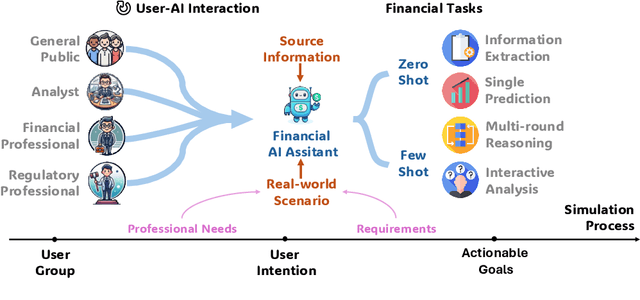
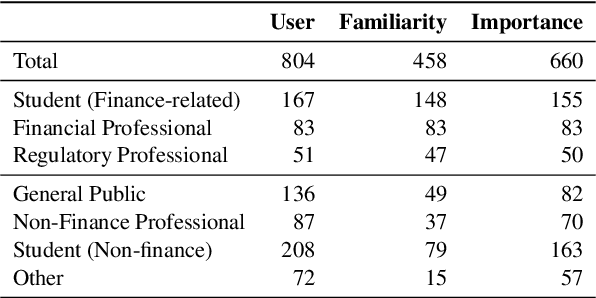
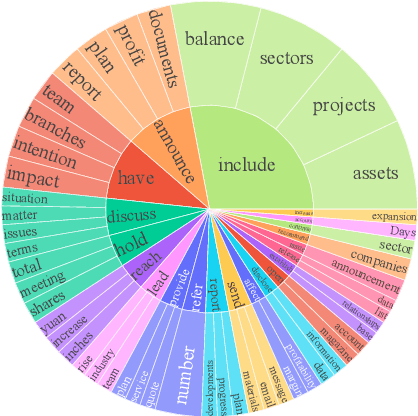
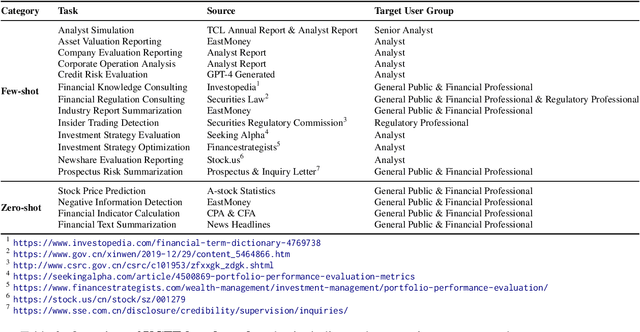
Abstract:This paper introduces the UCFE: User-Centric Financial Expertise benchmark, an innovative framework designed to evaluate the ability of large language models (LLMs) to handle complex real-world financial tasks. UCFE benchmark adopts a hybrid approach that combines human expert evaluations with dynamic, task-specific interactions to simulate the complexities of evolving financial scenarios. Firstly, we conducted a user study involving 804 participants, collecting their feedback on financial tasks. Secondly, based on this feedback, we created our dataset that encompasses a wide range of user intents and interactions. This dataset serves as the foundation for benchmarking 12 LLM services using the LLM-as-Judge methodology. Our results show a significant alignment between benchmark scores and human preferences, with a Pearson correlation coefficient of 0.78, confirming the effectiveness of the UCFE dataset and our evaluation approach. UCFE benchmark not only reveals the potential of LLMs in the financial sector but also provides a robust framework for assessing their performance and user satisfaction. The benchmark dataset and evaluation code are available.
Learning Tensor Representations for Meta-Learning
Jan 18, 2022
Abstract:We introduce a tensor-based model of shared representation for meta-learning from a diverse set of tasks. Prior works on learning linear representations for meta-learning assume that there is a common shared representation across different tasks, and do not consider the additional task-specific observable side information. In this work, we model the meta-parameter through an order-$3$ tensor, which can adapt to the observed task features of the task. We propose two methods to estimate the underlying tensor. The first method solves a tensor regression problem and works under natural assumptions on the data generating process. The second method uses the method of moments under additional distributional assumptions and has an improved sample complexity in terms of the number of tasks. We also focus on the meta-test phase, and consider estimating task-specific parameters on a new task. Substituting the estimated tensor from the first step allows us estimating the task-specific parameters with very few samples of the new task, thereby showing the benefits of learning tensor representations for meta-learning. Finally, through simulation and several real-world datasets, we evaluate our methods and show that it improves over previous linear models of shared representations for meta-learning.
 Add to Chrome
Add to Chrome Add to Firefox
Add to Firefox Add to Edge
Add to Edge